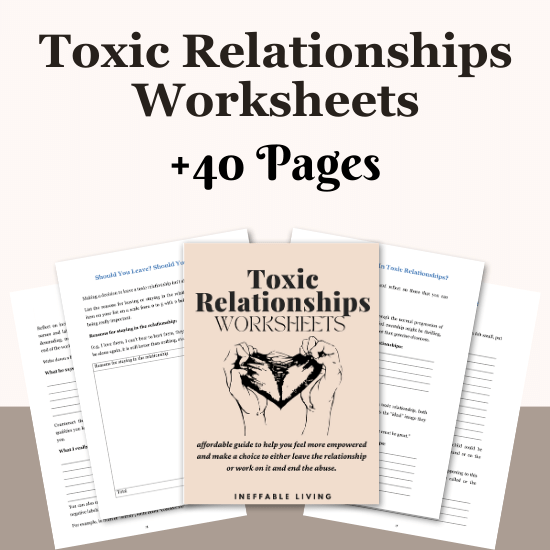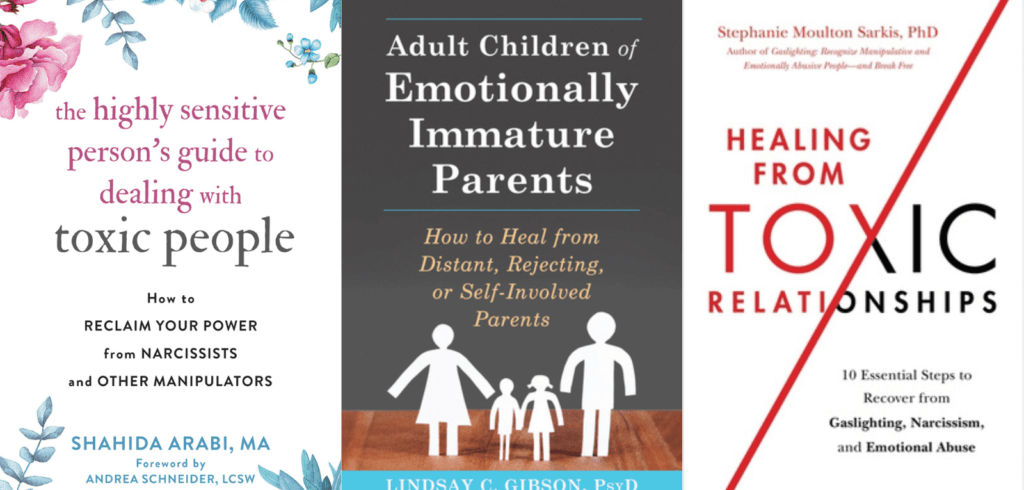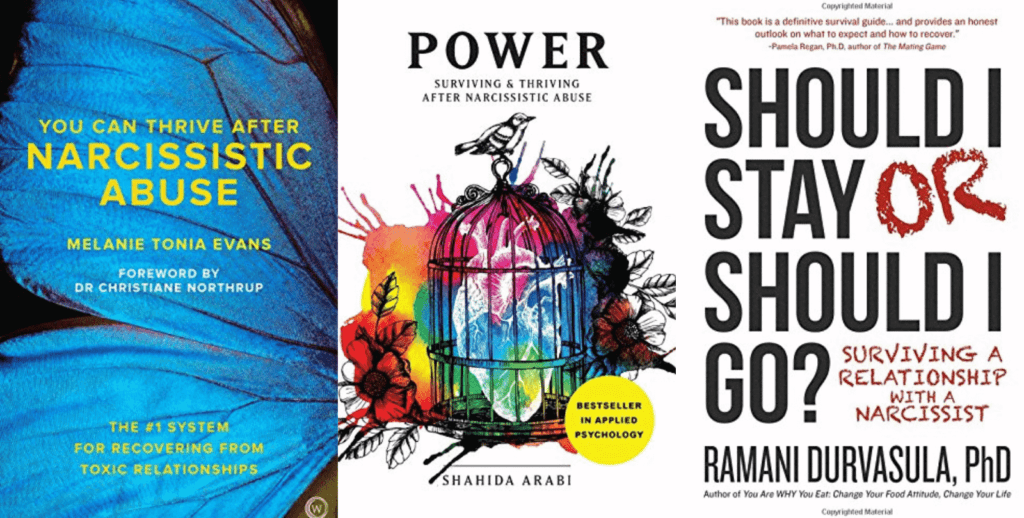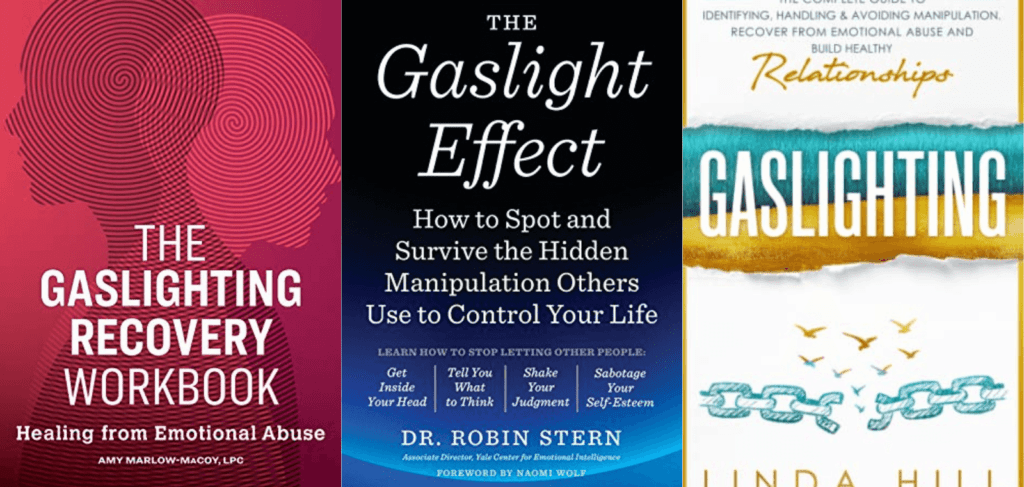The following are books about toxic relationships to help you embark on your recovery journey.
Disclosure: Some of the links below are affiliate links. This means that, at zero cost to you, I will earn an affiliate commission if you click through the link and finalize a purchase.
Signs of a Toxic Relationship
A toxic relationship refers to a relationship that is unhealthy, harmful, or emotionally damaging for one or both individuals involved.
It can occur in various types of relationships, including romantic partnerships, friendships, family relationships, or even professional relationships.
In a toxic relationship, there may be patterns of manipulation, control, disrespect, emotional abuse, physical abuse, or constant negativity.
Signs of a toxic relationship can include:
- Lack of trust: Constant suspicion, jealousy, or accusations without valid reasons.
- Manipulative behavior: One person consistently tries to control or manipulate the other’s thoughts, actions, or decisions.
- Emotional abuse: Frequent insults, belittling, and demeaning comments that undermine the other person’s self-esteem.
- Controlling behavior: Excessive jealousy, possessiveness, or attempts to isolate the other person from friends and family.
- Constant criticism: A consistent pattern of criticizing everything the other person does or says, often leading to feelings of worthlessness.
- Lack of communication: Difficulty expressing emotions or engaging in open, honest, and respectful conversations about problems or concerns.
- Physical or verbal abuse: Any form of physical violence, threats, or verbal attacks.
- Imbalanced dynamics: One person tends to have more power or control in the relationship than the other, leading to an unhealthy imbalance.
- Feeling drained or exhausted: The relationship consistently leaves one or both individuals feeling emotionally drained, exhausted, or unhappy.
- Lack of support: A lack of support, empathy, or understanding for each other’s needs, dreams, or goals.
Books About Toxic Relationships

1. Healing from Toxic Relationships
By Stephanie Moulton Sarkis
This book offers a practical recovery plan that outlines ten foundational steps to true healing: 1. Block or Limit Contact
2. Create Your Own Closure
3. Forgive Yourself
4. Establish Boundaries
5. Talk to a Professional
6. Practice Self‑Care
7. Reconnect
8. Grieve
9. Look Outward
10. Prevent: Keeping Toxic People Away

2. Disarming the Narcissist: Surviving and Thriving with the Self-Absorbed
By Wendy T. Behary
Disarming the Narcissist is a practical, step-by-step communication guide to help you cope with and confront the narcissist in your life.
With this how-to guide, you’ll learn how to separate yourself from a narcissist’s traps, and gain the respect and validation you deserve—while side-stepping unproductive power struggles and senseless arguments with someone who is at the center of his or her own universe. Finally, you’ll learn how to set limits with your narcissist and when it’s time to draw the line on unacceptable behavior.
Related: When A Narcissist Sees You Cry: Top 13 Reactions You May Be Familiar With

3. Stop Caretaking the Borderline or Narcissist
By Margalis Fjelstad
In her book, Margalis Fjelstad describes how people get into a Caretaker role with a Borderline or Narcissist, and how they can get out.
The book shows Caretaker’s how to move themselves out of these rigid interactions and into a healthier, more productive, and positive lifestyle–with or without the Borderline/Narcissistic partner or family member.
Related: Top 10 Journal Prompts For Narcissistic Abuse (+FREE Worksheets)

4. When to Walk Away: Finding Freedom from Toxic People
By Gary L. Thomas
Drawing from years serving as a pastor, Gary Thomas gives you insightful, biblical includes insightful takeaways that you can apply right away.
You’ll discover how to:
- Learn the difference between difficult people and toxic people
- Find refuge in God when you feel under attack
- Discern when to walk away from a toxic situation
- Keep a tender heart even in unhealthy relationships
- Grow your inner strength and invest in reliable people
Related: Are You A Victim of Narcissistic Abuse Quiz

5. Adult Children of Emotionally Immature Parents
By Lindsay C. Gibson
In this breakthrough book, clinical psychologist Lindsay Gibson exposes the destructive nature of parents who are emotionally immature or unavailable.
You will see how these parents create a sense of neglect, and discover ways to heal from the pain and confusion caused by your childhood. By freeing yourself from your parents’ emotional immaturity, you can recover your true nature, control how you react to them, and avoid disappointment. Finally, you’ll learn how to create positive, new relationships so you can build a better life.
Related: The Narcissist’s Prayer Explained

6. Love Yourself First
By Krystle Laughter
Many women are living lives far less than they deserve because they never learned how to love themselves.
In Love Yourself First, you’ll learn how to:
- Heal from the past,
- Teach others to love you by loving yourself,
- Choose relationships that compliment your future,
- Use the “3 A’s of Healing”,
- Practice self-love every day.
Related: How To Get Revenge On A Narcissist? (In Relationships & At Work)

7. The Highly Sensitive Person’s Guide to Dealing with Toxic People
By Shahida Arabi
In The Highly Sensitive Person’s Survival Guide to Dealing with Toxic People, you’ll learn evidence-based skills grounded in cognitive-behavioral therapy (CBT) and dialectical behavior therapy (DBT) to help you recognize and shut down the common manipulation tactics used by toxic people, such as gaslighting, stonewalling, projection, covert put-downs, and love bombing.
You’ll also discover targeted tips to protect yourself from the five main types of toxic people:
- Garden-variety boundary-steppers
- Crazymakers and attention-seekers
- Emotional vampires
- Narcissists
- Sociopaths and psychopaths
Related: 21 Stages of a Narcissist Relationship (+FREE Breakup Recovery Worksheets)

8. Adult Survivors of Toxic Family Members
By Sherrie Campbell
In her book, psychologist and toxic-family survivor Sherrie Campbell offers effective strategies for setting strong boundaries after ending contact with a toxic family member, and provides powerful tools to help you heal from shame, self-doubt, and stigma.
You’ll find the validation you need to embrace your decision with pride and acknowledgement of your self-worth. You’ll learn how to let go of negative thoughts and feelings. And finally, you’ll develop the skills needed to rediscover self-care, self-love, self-reliance, and healthy loving relationships.
Related: Undermothered: How to Mother Yourself Using These Practical 10 Strategies?

9. Psychopath Free
By Jackson MacKenzie
Psychopath Free operates under the assumption that you are not defined by your pain, but instead by the subsequent choices you make along the way.
The goal is to make the process a bit more holistic, to provide all the tools you’ll need to find validation, self-respect, peace, and love.
Psychopath Free will help you out of the darkness so that you can begin making better choices that will forever alter the course of your life.
Related: Toxic Mother Daughter Relationship Quiz (+FREE Worksheets)
Workbooks About Toxic Relationships

10. The Gaslighting Recovery Workbook
By Amy Marlow-MaCoy
The Gaslighting Recovery Workbook is a uniquely interactive method of rebuilding your self-esteem and allowing yourself to heal from an abusive relationship.
Through a process of explanation, advice, positive affirmations, daily logs, visualizations, and a journal-style workbook approach, you’ll understand gaslighting, the stages of recovery, and how to heal and move forward.
Related: Top 30 Affirmations After A Break Up (+FREE Breakup Worksheets)

How Books About Toxic Relationships Can Help?
Books about toxic relationships can be incredibly helpful for individuals who are struggling to understand and cope with difficult relationships.
These books can help in many ways, including:
1. Identifying the signs of a toxic relationship: A book can help readers understand the warning signs of a toxic relationship, which can allow them to take a step back and evaluate their own relationships.
2. Understanding abusive behavior: Toxic relationships often involve abuse or manipulative behavior. Books about toxic relationships can help individuals understand what constitutes as abusive or manipulative behavior, and how they can begin to recognize it in their own lives.
3. Learning to set boundaries: Setting healthy boundaries is essential in any relationship, but it can be especially important in toxic relationships. Books can help readers learn how to set boundaries and stick to them.
4. Gaining self-awareness: Toxic relationships can often leave individuals feeling confused or unsure of themselves. Books can help readers gain more self-awareness, which can empower them to make informed decisions about their relationships.
5. Finding support: Reading books about toxic relationships can help individuals feel less alone in their experiences. They can find comfort in knowing that others have gone through similar situations and have found ways to cope and heal.
Conclusion
If you find yourself in a toxic relationship, it’s important to prioritize your well-being.
Consider seeking support from friends, family, or professionals such as therapists or counselors who can help guide you through the process of healing and creating healthier relationships.



